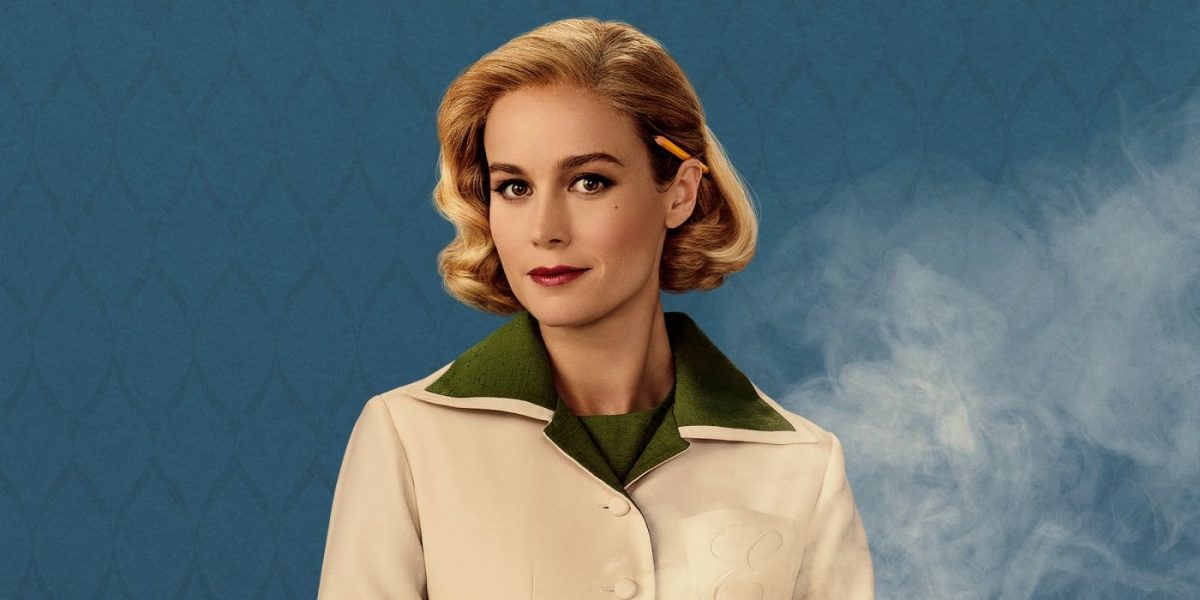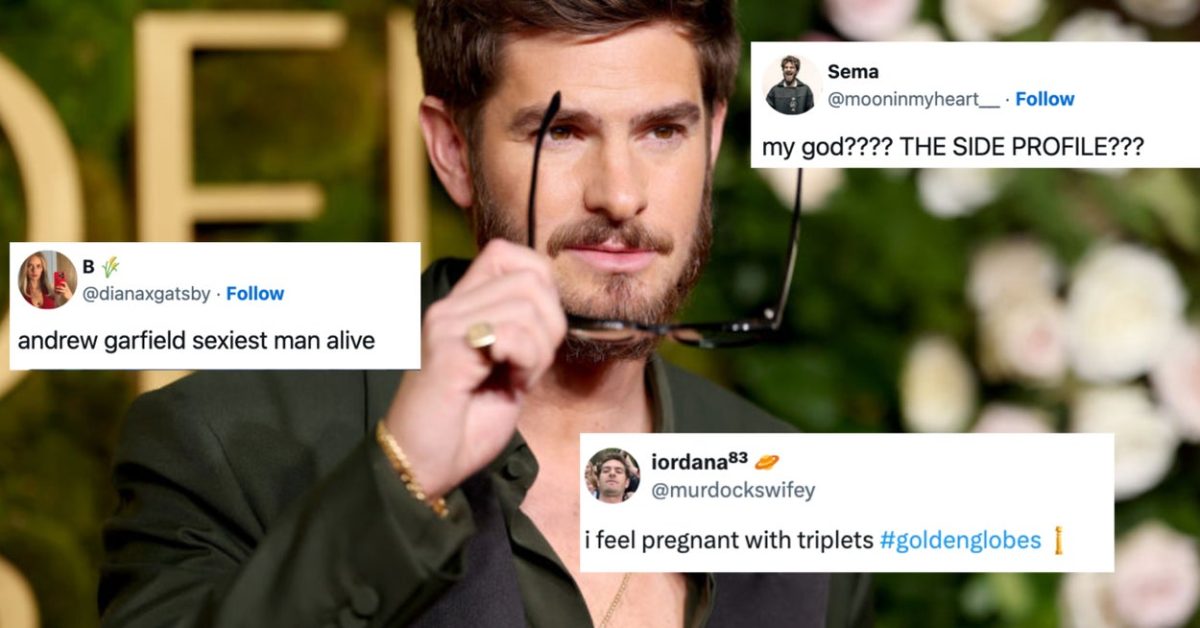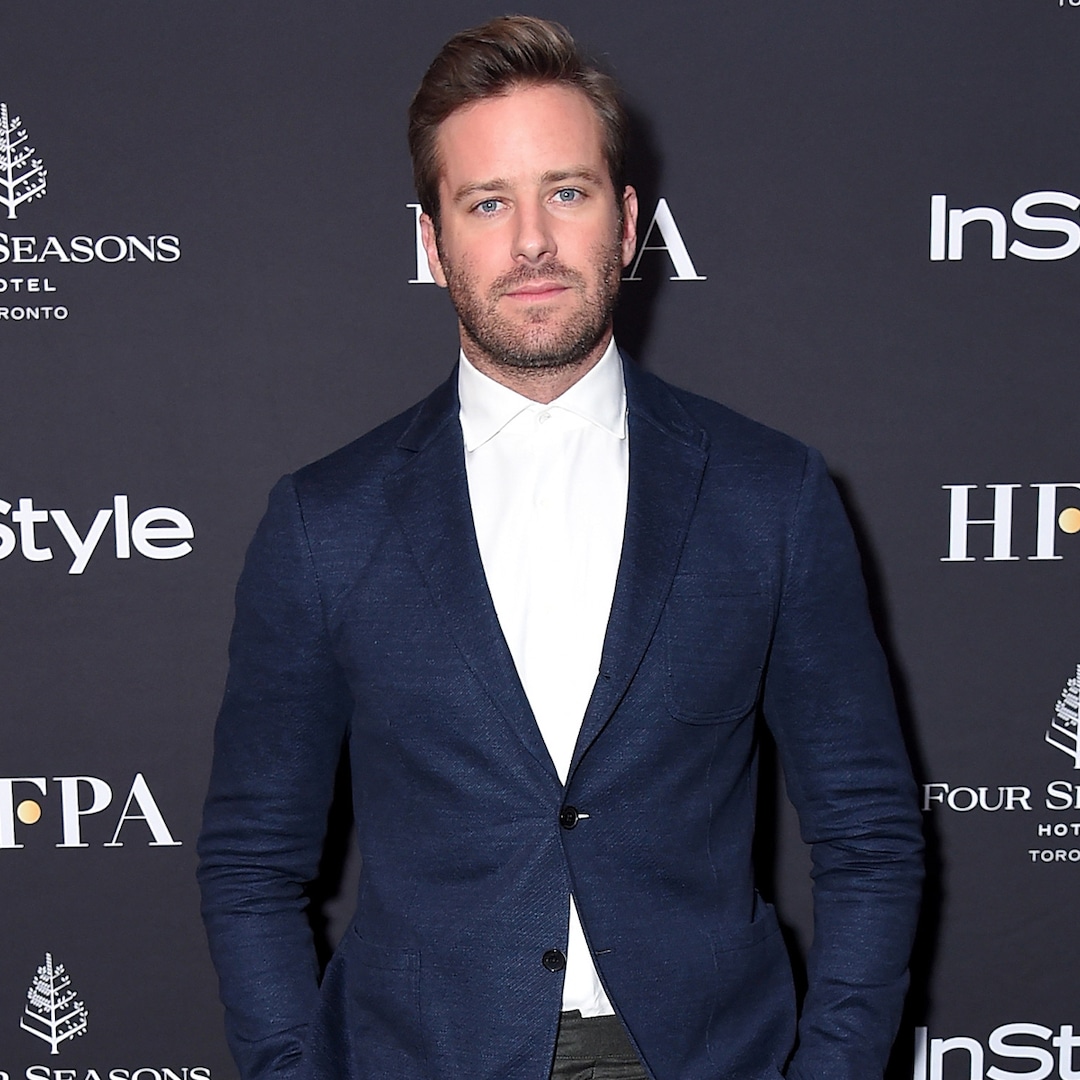
‘Lessons in Chemistry’ EPs on What Brie Larson Brought to Her Character
Oct 15, 2023
The Big Picture
Lessons in Chemistry is an Apple TV+ series set in the 1950s, following the story of Elizabeth Zott, a scientist facing gender discrimination. The series makes unexpected narrative choices, with each episode feeling distinct while still being part of a cohesive whole. The show handles sensitive topics, such as sexual assault, with care, exploring the emotional and physical trauma and its impact on the main character.
[Editor’s note: The following contains some spoilers for Lessons in Chemistry.]From showrunner Lee Eisenberg, the Apple TV+ original series Lessons in Chemistry tells the story of Elizabeth Zott (Brie Larson), a scientist forced to live within the patriarchal confines of the early 1950s that refuse to recognize her talent and wit. When Elizabeth finds her meticulously structured life unexpectedly chaotic, she takes a job as the host of a TV cooking show that allows her to use her skills as a chemist to speak to a nation.
During this interview with Collider, Eisenberg and Sarah Adina Smith, who directed the first two episodes, talked about wanting to take audiences on an unexpected journey, what makes Elizabeth Zott such an interesting character to center a story around, exploring the dog’s perspective, creating the look and vibe of the series, and approaching how they wanted to portray the sexual assault.
Collider: What made you decide to start off this series by shooting Brie Larson from behind, until we see her go live on the air? Was that always the idea for the start of the show? Did that change, at all?
SARAH ADINA SMITH: I came in with that pitch when I first joined the project. I really wanted to add some gravitas to her introduction and just wanted us to feel like we were sling shotted into her world and into her life. I thought that would be a really exciting and suspenseful way to introduce her for the first time.
Image via Apple TV+
There continues to be unexpected choices throughout this series. This feels like it would be a familiar story of this time period and of a woman like this, and yet the choices made, along the way, are not at all familiar and I really loved that.
EISENBERG: Thank you. That’s something we talked a lot about. We also talked about, how do you make every episode feel like its own thing? They all feel like part of an eight-part series, but with each one, you can immediately say, “Oh, this is the one where . . . ,” and the person immediately knows what you’re talking about. Sometimes when you do eight episodes, and certainly when you do 22, they all start melding together and you’re like, “Oh, right, in the middle of the season, something happened.” So, we really wanted to be very declarative with all of them. That was something we talked a lot about in the writers’ room. We talked about how each episode would start. We have an episode that starts with a bunch of men in the waiting room of a hospital and you’re like, “Why are we in a hospital? Who are these guys? Do I need to know them? And then, you realized, “Oh, this is what the experience was for men in the waiting room.” And you cut to the women actually doing all the heavy lifting in the delivery room. We always wanted to start episodes in one way and take you somewhere else.
SMITH: Honestly, when this project was first pitched to me, my first instinct was, “Oh, okay, 1950s sexism, we’ve seen this story before.” But it’s about so much more than that. It’s so much more than meets the eye. And really, it was in talking to (showrunner) Lee [Eisenberg] and understanding his vision for this adaptation that so inspired me. It’s a really complex human, delicately interwoven story about the life of Elizabeth Zott, but really about the constellation of people who she loves and who love her, and the cause and effect between all of them.
Lee, jumping ahead a little bit, what led to the decision to have the dog narrate episode three. And just as importantly, what made you look at the dog and hear BJ Novak?
EISENBERG: So much of the book is told through the dog’s perspective. One of the challenges of taking this from page to screen was that very issue and figuring out how to do it. There are logistical challenges to working with animals that, when you’re writing a book, you don’t contend with. And so, we quickly dismissed the idea of giving the dog multiple episodes to narrate because we felt like that would end up taking away from so many of the other stories that we wanted to tell. But we really want to do these declarative episodes, so having one episode that felt special, in that we were shifting the perspective a bit, was a challenge that we were really excited about. We talked so much in the writers’ room about grief and how everyone handles grief in different ways. It felt interesting and surprising and true to the story that we were telling that the dog was suffering as much as anyone else was. Six-Thirty was suffering from grief and guilt and the loss of his best friend. The inability, not only to experience grief, but when someone close to you is experiencing grief, how are you a comfort to them? That was something that we really wanted to explore, as much as the grief itself. And then, as far as casting BJ Novak as the dog, BJ and I have been friends for 20 years and, on top of being one of the funniest people on the planet, he’s actually incredibly soulful. His voice is very gentle and kind. There’s almost a quaver that he brought to it that I thought was so powerful. I wanted a voice that you might be familiar with and be like, “Wait, is that BJ Novak?,” but that you were able to disappear into. That was really the spark for it.
I would hug every dog, if I could, but that episode just made me want to hug that dog.
SMITH: Gus is very huggable and he has human eyes. He’s so soulful. You cast a dog because they’re really well-trained, but we needed a dog that could really emote, so that was something that we really spent a long time on. Sarah, in particular, spent time finding that dog. It was so crucial because the dog isn’t just an appendage to the family. The dog really is a character that hopefully has an arc in the story.
Image via Apple TV+
Elizabeth Zott is such a challenging character because she isn’t always likable, as so many people seem to like to tell her, but I love her. I think that’s what makes her interesting. What do you think it is that makes her such a great character to center this story around and to really never give in on those prickly parts of her personality?
SMITH: The thing that draws me to her the most is that she’s just so intensely curious about the world and so committed to the pursuit of scientific knowledge and truth. One of the things that drew me to the project, more than anything, was her quest to study abiogenesis, the origins of life. She’s a scientist, but she has a philosophical heart, as well. She’s really earnest, in her pursuit of that. That’s what makes her noble and really likable, and we really wanna root for her. At the same time, her social obliviousness also makes her really charming and funny, and makes her a fun watch.
EISENBERG: She has a world view, and the world view might not be your world view, but it’s incredibly logical. The delivery, particularly the way that Brie did it, is so matter of fact, and she has an answer for everything. She’s a character that’s whip smart, in any situation. We all contend with bullies and with people that don’t see the best in us, and Elizabeth is indomitable and unwavering in her belief system. It’s not that she’s unwilling to evolve or lacks the ability to evolve. She has a very strong moral compass of what’s right and wrong. And then, as we get into the second half of the season, she really is able to allow her audience to rise up. She does see the best in everyone and she believes that you can be the best version of yourself. I think there’s something incredibly inspiring about seeing someone, without it being treacly.
Even in just the first couple of episodes, I went through this journey of not knowing whether I liked her, not being sure if I would want to be friends with her, and not knowing if I’d want to hang out with her, to wanting to fight for her and punch someone in the face on her behalf, as more and more people say things to her. You slowly fall in love with her.
EISENBERG: She’s unapologetically herself, at every moment, I would say. She doesn’t compromise.
Image via Apple TV+
You guys really create a whole mood and vibe for this show, with the time period, the wardrobe, and the way people talk and move and interact. What’s it like to see all of that fall into place? Is there a tiny detail on one of the sets, that you particularly love, but that might not ever even be seen or noticed by audiences watching it?
SMITH: That’s a cool question.
EISENBERG: Yeah. That’s a testament to Sarah and her team, and all the work that was done in pre-production and all the meetings that took place, where every piece of set design and costume is debated exhaustively. Sarah worked with her director of photography to really capture a look that doesn’t feel like it’s being pulled from the best of the 1950s period shows. It had a warmth and a texture to it that really made it feel alive. It’s very easy in a show about chemistry, and there were a lot of conversations we had about, “Do we need to CSI-style zoom in and see atoms colliding? And for the cooking, do we need to see molecules on the screen?” The more that Sarah and I got into it, the more we realized that we had these amazing actors and that the look of the show was really, in a way, becoming a character, in itself, and we didn’t need all of these technological advancements. There’s such a naturalism to it in the performances, and also the way that it was shot really gave it a lushness and a beauty and a warmth that I fell in love with. And one special thing that I wrote in one of the scripts, that I made up and then was validated afterwards by one of our science consultants, was to infuse Elizabeth, as a chemist, into her home kitchen and figure out the sorts of things that she would have. I liked the idea that she kept her spices in test tubes. If you watch the show closely and you pause it, you will probably see some test tube spice racks, at some point. It’s not feature, in any way, but it’s all those little details that not only did I bring, with Sarah and our production designer and all these people, but all of a sudden, it adds a layer to it, so that it feels like this kitchen could only exist for this character.
SMITH: When you asked that question, the first thing that came to mind was Elizabeth’s home kitchen – the first kitchen that we see. Her love for cooking is really about it being her one safe space to unwind, after the day. She also doesn’t have a lot of money, so on a practical level, she has to figure out how to feed herself nutritiously for a week and do her prep work, in order to feed herself throughout the week. There’s something that feels so beautiful and contained about her in that kitchen, but it also represents how small she’s kept her world and how her world does need to expand. So, it’s not one prop or one set piece, but more just that whole kitchen space and it feeling almost like that was Elizabeth, before she met Calvin and before her world exploded and her walls started to come crashing down.
Image via Apple TV+
What were the conversations like, when it came to figuring out how you wanted to handle the sexual assault? We get glimpses of what might have happened to Elizabeth throughout the first episode, and then it becomes much clearer in episode two. What were those conversations like between the two of you, and with Brie Larson?
SMITH: Brie and I spoke a lot about this, and we were very conscientious about not wanting to make sexual assault just some sort of backstory trauma that gets thrown in to try to be a substitute for making a character interesting. Too often, that can be treated that way. So, we really wanted to take it seriously and explore all the nuances of the repercussions of having gone through something like that. There’s physical trauma, and then there’s an extra layer of betrayal and emotional trauma when it happens with someone who you love and trust. At that time in Elizabeth’s life, this was her core collaborator and she thought they were respected peers working on something together. To have the betrayal and the assault come from someone like that, you can then understand why she’s had to navigate the world with walls up. To Lee’s credit in the writing and to Brie’s credit in the performance, I think we also maintain a vulnerability with Elizabeth Zott. It’s not just that she had this assault, and now she’s a hardened hero and nothing will stop her. We see that that’s something that never goes away and that she’ll always carry with her. Brie really, through her performance, allows us to see how she integrates that and is able to find strength and continue on with her life, but in a way that takes the reality of something like that very seriously.
Lessons in Chemistry is available to stream at Apple TV+.
Publisher: Source link
Aubrey Plaza Issues Statement After Jeff Baena’s Death
The 40-year-old star and Jeff’s family issued a statement to People on Monday, where they called their loss an “unimaginable tragedy.”The Los Angeles County coroner’s office previously determined that Jeff died by suicide in his LA home. He was 47…
Jan 10, 2025
Jill Duggar’s Husband Clarifies Where He Stands With Jim Bob Duggar
Jessa Duggar (m. Ben Seewald)Jim Bob and Michelle's fifth child, Jessa Duggar, was born Nov. 4, 1992. Jessa met Ben through church and he began courting her in 2013—the old-fashioned approach to romance coming as a brand-new notion to a lot…
Jan 10, 2025
The Internet Has Officially Lost It Over Andrew Garfield's Slutty Glasses
That man knew exactly what he was doing with those glasses.View Entire Post › Disclaimer: This story is auto-aggregated by a computer program and has not been created or edited by filmibee.Publisher: Source link
Jan 9, 2025
Armie Hammer Lands First Movie Role Since Cannibalism Allegations
Armie Hammer Cameos As “Kannibal Ken” in Music Video 4 Years After Cannibalism ClaimsArmie Hammer is heading back to the big screen. More than one year after the Los Angeles Police Department ended their lengthy investigation into the Call Me…
Jan 9, 2025











